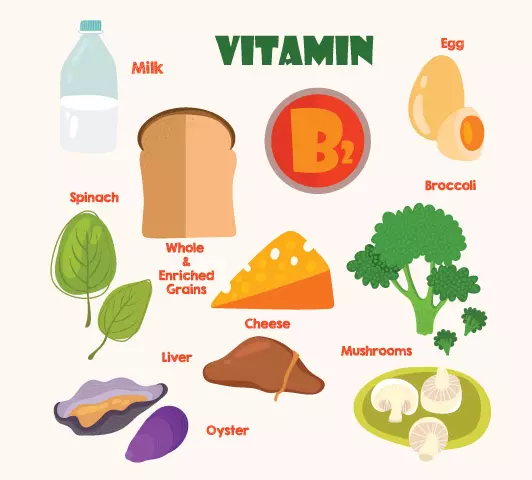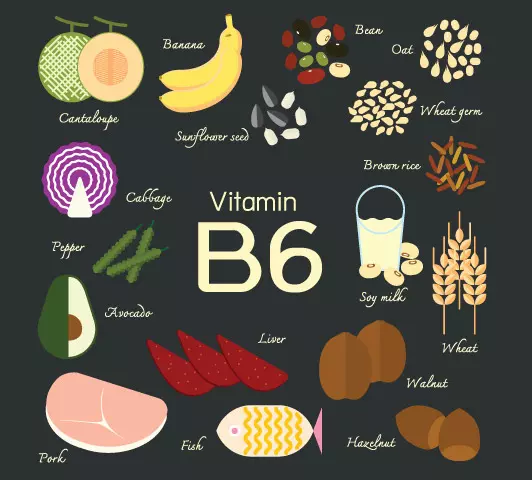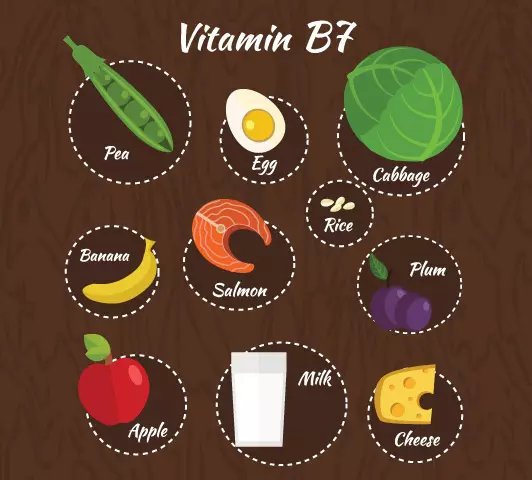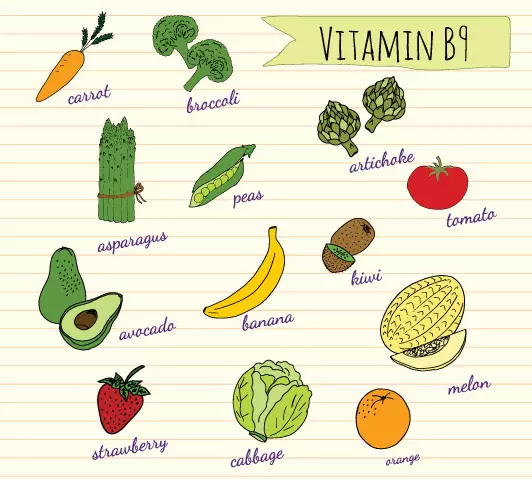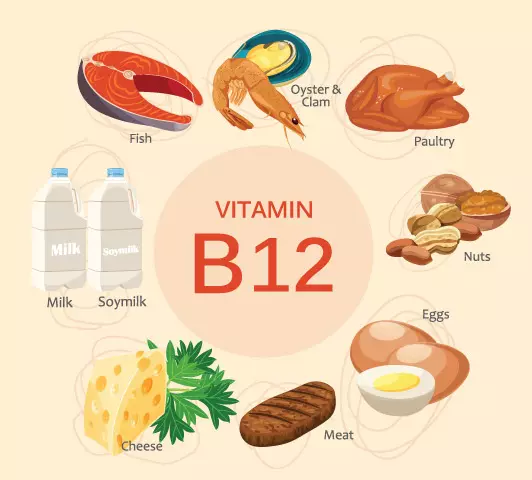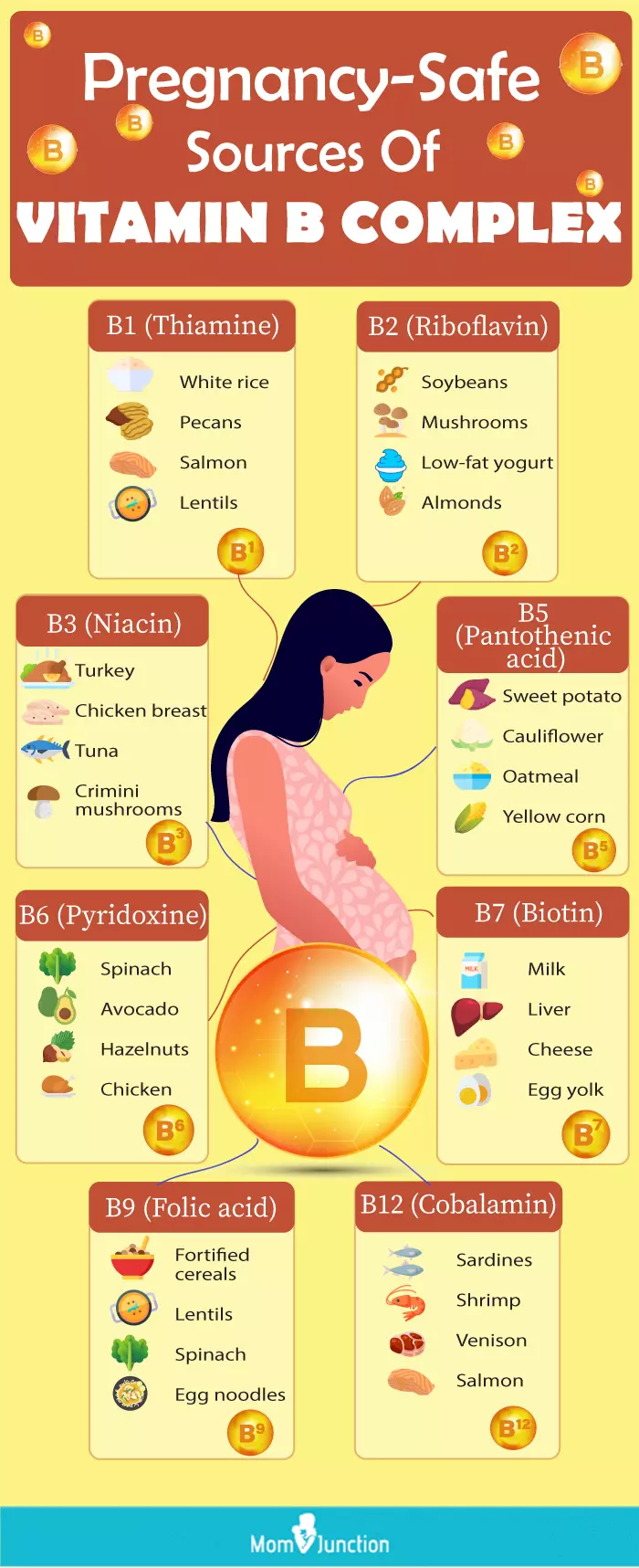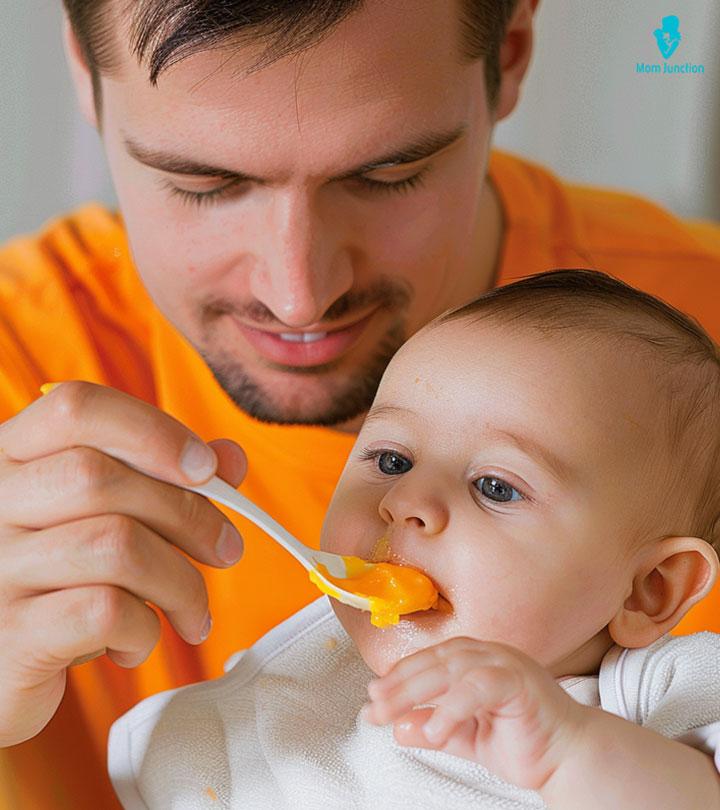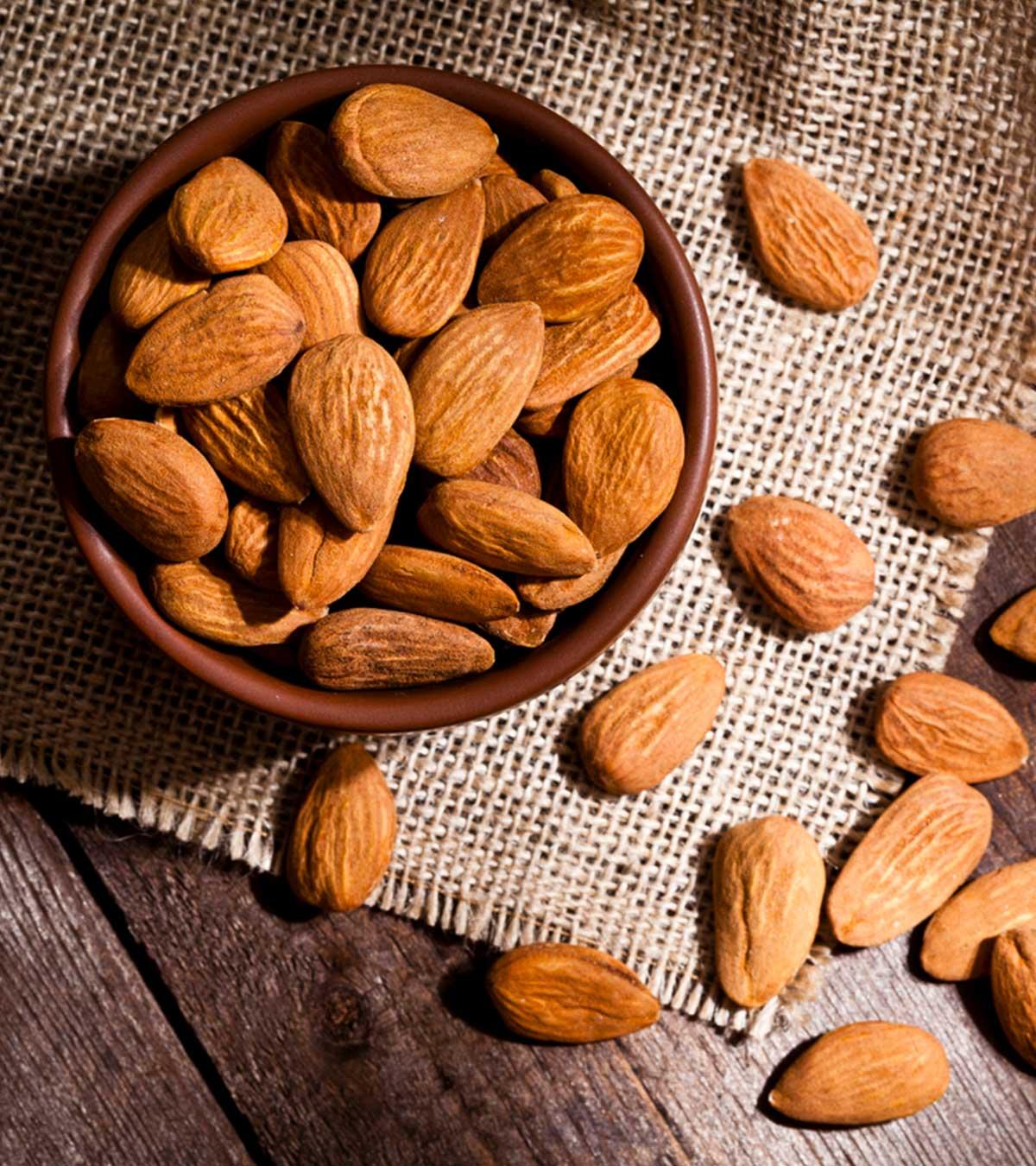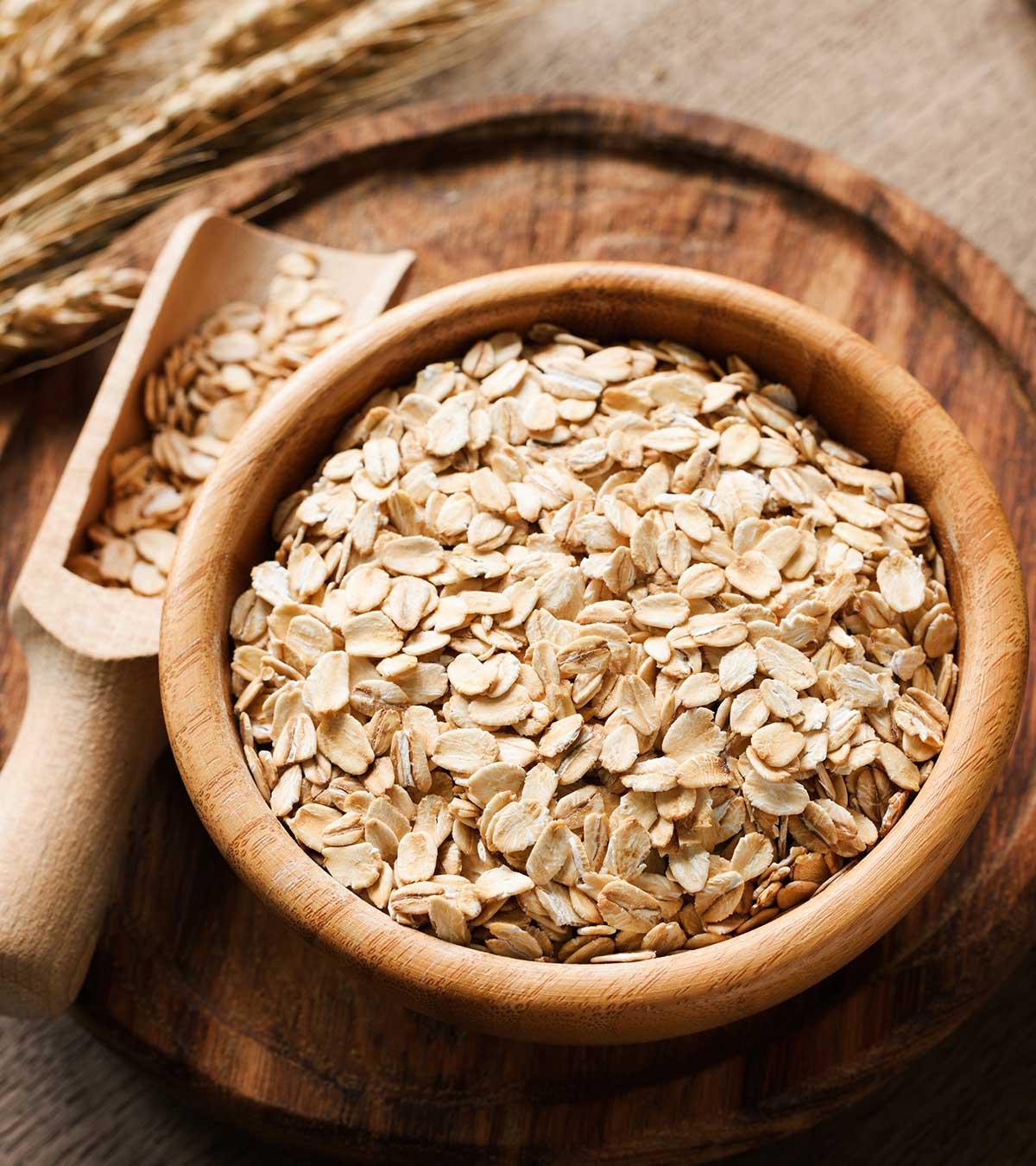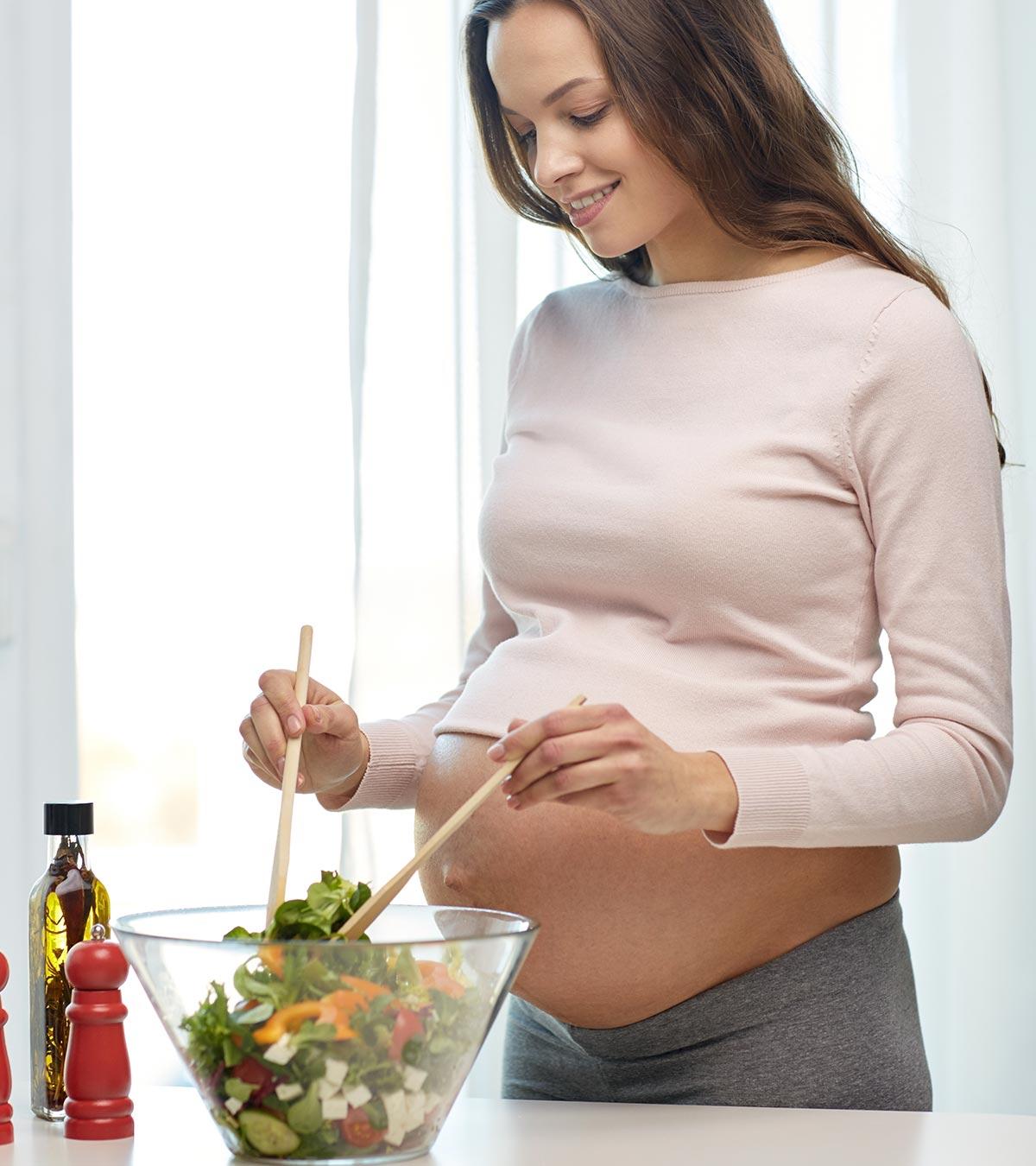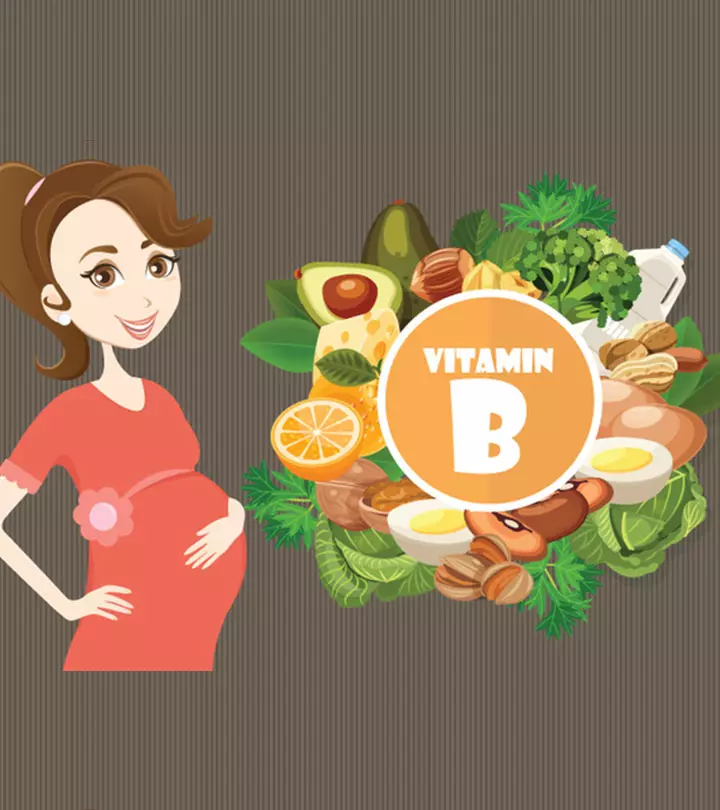
Image: ShutterStock
Consuming vitamin B complex during pregnancy is essential for maintaining the mother’s physical strength and supporting the baby’s development and growth. In addition, these vitamins help the body convert carbohydrates into energy (glucose).
Since B vitamins are water-soluble and not stored in the body, they should be regularly included in the maternal diet for optimum maternal nutrition in the form of vitamin B-rich foods. In most cases, a balanced diet will help you get all the B vitamins required for your body. However, you could consult your doctor to determine if you require any supplements. It is important to carefully evaluate the deficiency of vitamin B complex such that supplements do not negatively impact maternal health and fetal growth.
This post gives you detailed information on the different types of vitamin B complex, their functions, dosage, and best sources.
Key Pointers
- Adequate intake of Vitamin B is crucial for a healthy pregnancy.
- Different types of Vitamin B have distinct functions and recommended daily allowances.
- Expectant mothers should consult with their doctor about their dietary choices and supplement use.
- Various B vitamins are involved in crucial body functions and required for fetal development.
- Folic acid (B9) is particularly important for preventing congenital disabilities and supporting fetal brain development.
1. Vitamin B1 (Thiamine)
Vitamin B1, also known as Thiamin or Thiamine, performs many important functions during your pregnancy.
- It enables both you and your baby to convert carbohydrates into energy.
- Plays a major role in baby’s brain development.
- Helps your muscles, nervous system and heart function normally.
How much do you need?
The recommended daily allowance (RDA) of vitamin B1 during pregnancy is 1.4 milligrams (mg) irrespective of a woman’s age (1). Women carrying more than one baby should increase their thiamine intake.
Sources of vitamin B1
Thiamine is found in several foods. Whole grain products, cereals, fortified bread, pasta, peas, dried beans, some fish, and pork are good sources. Dairy products, fruits, and vegetables also contain vitamin B1, but in small amounts (2).
Take a look at the amount of vitamin B1 present in each of these foods:
- 3/4th cup whole grain cereal – 1.5mg
- 1 cup white rice (cooked) – 1.2mg
- 1 cup brown rice (cooked) – 0.2mg
- 1/2 cup oats – 0.6mg
- 1/4 cup pecans – 0.4mg
- 1/4 Brazil nuts – 0.4mg
- 1/2 cup peas (cooked) – 0.2mg
- 1/2 cup lentils (cooked) – 0.2mg
- 1/4 cup wheat germ – 0.5mg
- 1/2 cup split peas (cooked) – 0.2mg
- 1 cup spinach noodles (enriched) – 0.4mg
- 3 ounces rainbow trout – 0.3mg
- 3 ounces salmon – 0.3mg
- 3 ounces ham steak (cured boneless) – 0.3mg
- 3 ounces Florida pompano – 0.7mg
- 3 ounces pork tenderloin – 0.8mg
 Quick fact
Quick factWhat happens if you do not have enough vitamin B1?
Early signs of vitamin B1 deficiency are nausea, fatigue, nerve damage and headache. Severe deficiency leads to beriberiiA disease caused due to a deficiency of vitamin B1 – wet, dry or cerebral depending on the body part it affects. Wet beriberi is an acute form which causes poor blood circulation and edemaiSwelling caused by excess fluid trapped in the tissues , leading to heart failure. The dry form of the disease causes gradual nerve degeneration in the arms and legs, loss of reflexes and muscle atrophy.
Thiamine deficiency is common in developing countries, where people eat processed rice. Thiamine present in the outer coating of rice is removed while processing.
In industrial countries, alcohol is the main reason for vitamin B1 deficiency as it adversely affects thiamine absorption in the body.
In developed countries like the US, foods are usually fortified with vitamin B1, and also multivitamins and prenatal vitamins contain it. Therefore, the deficiencies are rare.
Do you require a supplement?
According to the US Department of Health, you can get the necessary vitamin B1 from foods like whole grain and fortified cereals, and a balanced diet. In case you don’t, you may take a prenatal supplement or multivitamin to get your RDA. Check with your healthcare provider to know if a supplement is needed, especially if you have dietary restrictions or signs of deficiency.
What happens if you take too much?
There is no evidence to show the adverse effects of excess thiamine intake while you are pregnant.
2. Vitamin B2 (Riboflavin)
Image: Shutterstock
Vitamin B2, also known as Riboflavin, is a co-enzyme that is involved in many reactions in the body.
- It plays a prominent role in promoting healthy skin, good vision, growth and development of baby’s muscle, bone, and nerve.
- It lowers the risk of getting preeclampsiaiA pregnancy disorder characterized by high blood pressure, water retention, and protein content in urine .
How much do you need?
The recommended daily allowance (RDA) of vitamin B2 during pregnancy is 1.4mg (3).
Sources of vitamin B2
Milk, fortified cereals, wheat flour and bread products are all excellent sources of vitamin B2.
Take a look at the amount of riboflavin present in each of the following foods:
- 1 cup non-fat milk – 0.5mg
- 1 cup low-fat yogurt (plain) – 0.5mg
- 1 1/2 ounces Cheddar cheese – 0.2mg
- 1/2 cup partly skimmed Ricotta cheese – 0.2mg
- 1/2 cup Cottage cheese (1%) – 0.2mg
- 1/2 cup mushrooms – 0.2mg
- 1/2 cup soybeans – 0.3mg
- 3 ounces pork spare rib (tender) – 0.3mg
- 1/2 cup spinach (cooked) – 0.2mg
- 3 ounces tempeh (cooked) – 0.3mg
- 1 hard-boiled egg (large) – 0.3mg
- 3 ounces skinless duck – 0.4mg
- 1/4 cup almonds – 0.3mg
Caution:
UV light can destroy riboflavin in foods, so these foods should be kept in opaque containers away from light.
What happens if you do not have enough vitamin B2?
The signs of riboflavin deficiency are skin rash, anemia, dermatitis, magenta (red and dry) tongue, cracking and dryness around lips, mouth and nose.
You are at a higher risk of deficiency if you are suffering from anorexia (eating disorder) and lactose-intolerance (since you will be avoiding dairy products).
Do you require a supplement?
The US Department of Health says that you can obtain the necessary riboflavin through a healthy diet containing multi-grains, eggs, meat, dairy products, fortified cereals and green vegetables. If you use supplements, do not take them beyond the daily recommended limit.
What happens if you take too much?
There is no evidence about the adverse effects of excess intake of vitamin B2. Any vitamin B2 that is not used by the body is usually excreted through urine.
3. Vitamin B3 (Niacin)
Image: Shutterstock
Vitamin B3, also called niacin, is present in two forms – nicotinamide and nicotinic acid, both of which help in releasing energy from food.
- It keeps skin, nervous system and mucous membrane healthy.
- It is essential for the baby’s brain development.
- It helps ease nausea, subside a painful migraine and improves digestion.
Niacin is classified into pregnancy category C by the US FDA. Studies have revealed that it can cause harm in animals, but further research is required to know its effect on humans.
How much do you need?
The recommended amount of vitamin B3 during pregnancy is 18mg per day (4). You can include up to 35mg per day, and vitamin B3 intake between these two levels is acceptable while you are pregnant. . According to the Merck Manuals Online Medical Library, ‘intake of more than 35mg has not been studied in pregnant women’, therefore it is not recommended.
Sources of vitamin B3
Both nicotinamide and nicotinic acid are found in food. You can include the following foods to get the required amount of niacin:
- 4 oz chicken breast (roasted) – 14.41mg
- 4 oz salmon (broiled or baked) – 11.34mg
- 4 oz yellowfin or tuna (broiled or baked) – 13.54mg
- 4 oz Turkey – 8.50mg
- 4 oz calf’s liver (lightly fried) – 9.61mg
- 4 oz Venison – 7.61mg
- 4 oz Halibut (broiled or baked) – 8.08mg
- 5 oz Crimini mushrooms (raw) – 5.39mg
- 4 oz lamb loin (roasted) – 7.75mg
What happens if you do not have enough vitamin B3?
Vitamin B3 deficiency is rare as you will easily get the daily requirement by the available food sources or from tryptophan (an amino acid, which converts to niacin in the body) present in dietary proteins
(4). The deficiency is usually higher in those who consume corn or sorghum as their staple diet. Niacin is present in bound form in these sources.
Do you require a supplement?
Supplementation is usually not needed since you will get enough vitamin B3 in an average diet.
What happens if you take too much?
There are no adequate studies to determine the effects of vitamin B3 taken in high doses during pregnancy. They are otherwise known to cause skin flushes and liver damage.
Oral niacin is classified under the Pregnant C category by the US Food and Drug Administration (FDA) as the drug has not been studied completely in pregnant women. As there is no proper evidence to determine its effects on the mother and fetus, the drug should be taken only if the doctor prescribes it.
The use of FDA approved niacin at therapeutic doses taken under the doctor’s supervision, lowers triglyceridesiThe most common type of fat in the blood, provides energy for bodily functions and cholesterol. But the dosage is 6g, which is far higher than the recommended intake during pregnancy. Therefore, you should stop taking niacin during pregnancy especially when you are taking it for low HDL or high LDL cholesterol. But, if you are taking high triglycerides, you should bring it your doctor’s notice as triglycerides increase during pregnancy.
4. Vitamin B5 (Pantothenic Acid)
Image: Shutterstock
Vitamin B5 or Pantothenic Acid is a component of coA (coenzyme A), essential for various chemical reactions in the cells.
- It helps prevent muscle cramps during pregnancy.
- It releases hormones which help you fight stress.
- It is helpful for metabolism of proteins, carbohydrates and fats.
How much do you need?
Your body requires 6mg of pantothenic acid every day during pregnancy.
Sources of vitamin B5
Pantothenic acid is found in almost all varieties of meat and vegetables. Here are some good options to get the necessary amount of this vitamin:
- 1/4 cup sunflower seeds (dry and roasted) – 2.3mg
- 3/4 cup whole grain cereals (fortified) – 10mg
- 8 ounces low-fat yogurt (plain) – 1.3mg
- 5 ounces Crimini mushrooms (raw) – 2.1mg
- 1 baked sweet potato (medium sized) – 1mg
- 1/2 avocado (medium sized) – 1.1mg
- 1/2 cup yellow corn (cooked) – 0.7mg
- 1 cup non-fat milk – 1mg
- 1 potato (baked) – 0.7mg
- 1/2 cup assorted chocolate chips, seeds and salted nuts – 0.7mg
- 1 cup oatmeal (cooked) – 0.5mg
- 1/2 cup mushrooms (raw) – 0.5mg
- 1 orange (medium) – 0.5mg
- 1 banana (medium) – 0.5mg
- 1/2 cup cauliflower (boiled) – 0.3mg
- 1/2 cup broccoli (boiled) – 0.3mg
- 1 hard-boiled egg (large) – 0.7mg
- 3 ounces chicken breast (roasted) – 1mg
- 3 ounces salmon (baked) – 1.2mg
What happens if you do not have enough vitamin B5?
Vitamin B5 deficiency is rare when you are pregnant. There is a risk of its deficiency in women who are severely malnourished or on a diet or suffering from toxemia (an abnormal condition in pregnancy) (5). Symptoms include weakness and chronic fatigue.
Do you require a supplement?
Pantothenic acid is present in almost all foods, and therefore you do not need any additional intake. It is also present in most of the prenatal vitamin supplements.
What happens if you take too much?
Since pantothenic acid is a water-soluble vitamin, the body gets rid of the excess amount through urine. The effects are not known if it is taken in larger amounts than the recommended intake. However, avoid over-consumption.
5. Vitamin B6 (Pyridoxine)
Image: Shutterstock
Vitamin B6, also known as Pyridoxine, is essential for your body to metabolize carbohydrates, proteins and fats. It helps to form red blood cells, neurotransmitters and antibodies.
- It is essential for the development of your baby’s brain and nervous system.
- It helps relieve morning sickness and maintains healthy blood glucose levels.
- It prevents low birth weight in babies (6).
How much do you need?
According to the US Institute of Medicine, the daily requirement of vitamin B6 during pregnancy is 1.9mg (7). However, the tolerable upper intake is 100mg for women around and above 19 years and 80mg for those around and below 18 years.
Sources of vitamin B6
Pyridoxine is found in a variety of foods. Lean meat, fish, beans, and nuts are excellent sources of this vitamin. Fortified cereals and breads are also good sources. Some good options are:
- 1/2 cup chickpeas (canned) – 0.57mg
- 1 baked potato (medium with skin) – 0.74mg
- 1 cup spinach (cooked) – 0.44mg
- 8oz prune juice – 0.56mg
- 1 banana (medium) – 0.43mg
- 1/2 avocado – 0.26mg
- 1 cup brown rice (long grain, cooked) – 0.28mg
- 1oz hazelnuts (dry and roasted) – 0.18mg
- 1oz sunflower seeds (dry and roasted) – 0.23mg
- 3oz chicken (roasted) – 0.46mg
- 3oz lean pork loin (broiled) – 0.49mg
- 3oz farmed salmon (cooked) – 0.55mg
 Quick fact
Quick factWhat happens if you do not have enough vitamin B6?
Mild deficiencies are common while severe deficiencies are rare. Early signs of pyridoxine deficiency include depression, sores or mouth ulcers and inflammation of the tongue.
Vitamin B6 deficiency can cause a form of anemia, which is similar to iron deficiency anemia. It also decreases the antibody production and affects immune response.
Do you require a supplement?
According to the US Department of Health, you can get the required amount of this vitamin from a balanced diet. Most prenatal vitamin and mineral supplements contain nearly 100% of RDA.
Caution: If you have morning sickness, you should check with your doctor before taking any pyridoxine supplements as too much is not safe for you as well as your growing fetus.
What happens if you take too much?
A few high potency multivitamins, which you take during pregnancy, contain pyridoxine in excess amounts. You also get a high quantity of this vitamin if you include fortified foods in your diet. Excess intake of vitamin B6 can lead to nerve damage and numbness.
6. Vitamin B7 (Biotin)
Image: Shutterstock
Vitamin B7 or Biotin or H vitamin generates energy from the food you eat. It is, therefore, necessary to form enzymes that break down carbohydrates, proteins and fats.
- It is essential for embryonic growth during pregnancy.
- It is helpful to treat skin rash, brittle nails and hair loss.
How much do you need?
As per the US Food and Nutrition Board of the National Academy of Science’s Institute of Medicine, the recommended daily allowance of vitamin B7 during pregnancy is 30mg (8).
Sources of vitamin B7
The bacteria residing in your digestive tract is responsible for producing some of your essential biotins. Food sources rich in biotin include egg yolk, liver, milk, oats, swiss chard, mushroom, salmon, pork, cheese, raspberries, cauliflower and molasses.
What happens if you do not have enough vitamin B7?
Research states that biotin is rapidly broken down during pregnancy and therefore its nutritional level declines (9). It is known to cause birth defects in many of the animal species. Almost one-third of pregnant women develop marginal biotin deficiency and it indirectly proves that it can cause congenital anomalies in the fetus (8). To rule out the risk of an abnormal embryo or fetus, you should make sure you take enough biotin while pregnant.
Symptoms of vitamin B7 deficiency include thinning of hair, depression, listlessness, hallucinations and tingling sensation in the arms and legs.
Do you require a supplement?
Pregnant women are advised to take prenatal vitamins or multivitamins that include supplemental biotin to help prevent congenital anomalies.
What happens if you take too much?
Taking excess doses of biotin for a long period may lead to certain side effects while you are pregnant. They usually include allergies, miscarriage and acne. However, they are rare. So, consult your doctor for the right dosage.
Also, when you notice an allergy or acne symptoms, you should start cutting down the dosage to less than 250mg per day.
7. Vitamin B9 (Folic Acid)
Image: Shutterstock
Vitamin B9 or Folic Acid is the most important B vitamin to include during pregnancy.
- It prevents neural tube defects (NTDs)iSevere birth abnormalities of the central nervous system that develop early during pregnancy , serious birth complications of the brain (like anencephaly) and spinal cord (like spina bifida). The neural tube is a section of the embryo from where your baby’s brain and spine develop.
- NTDs develop at a very early stage, even before you may know about your conception. Therefore, it is important to take folic acid supplements from the time you try to conceive.
- According to the US Centers For Disease Control and Prevention (CDC), women should take a recommended amount of folic acid from one month before conception and during the first trimester to reduce the risk of NTDs in their babies by 70% (10).
- It also reduces the risk of other defects like cleft palate, cleft lip and some heart defects in babies and preeclampsia in pregnant women.
- It is essential for the production of red blood cells to prevent a form of anemia.
- It is important for the synthesis of DNA, placental function and growth, and development of your baby.
How much do you need?
The recommended daily intake of vitamin B9 is 400mcg during pregnancy (11). If you are on prenatal or multivitamins, check whether you are getting the required amount. According to WebMD, here is the quantity of folic acid you can include during pregnancy:
- When trying to conceive – 400mcg a day
- First trimester – 400mcg a day
- Four to nine months of pregnancy – 600mcg a day
According to the US National Institutes of Health, it is advisable to include at least 600mcg a day during pregnancy (12).
Most prenatal vitamins contain 800-1,000mcg folic acid. You should not include more than 1,000mcg a day unless your doctor says so.
When do you need extra vitamin B9?
- If you are overweight, you should check with your doctor before you try to become pregnant. You may be advised to include more than 400mcg a day.
- If you are pregnant with a baby who has NTD, your doctor may recommend you to include 4,000mcg a day.
- If you are having twins, you may be advised to include about 1,000mcg a day.
You may also require extra folic acid in the following cases:
- A genetic mutation called Methylenetetrahydrofolate reductase makes it difficult to produce folate and folic acid in the body.
- If you are taking diabetes or antiseizure medications.
There will be almost 3-5% chance of having a pregnancy with NTD, so you should always talk to your doctor before you try to conceive.
Sources of vitamin B9
Folic acid is rich in lentils, dark green vegetables, sprouts, citrus fruits, asparagus, avocado, dried beans, peas and nuts. Some common food options you may include:
- 3/4th cup fortified cereals – 400mcg
- 3 ounces beef liver (cooked and braised) – 215mcg
- 1/2 cup lentils (cooked) – 179mcg
- 1/2 cup egg noodles (enriched, cooked) – 110mcg
- 1/2 cup spinach (cooked) – 115mcg
- 1/2 cup Great Northern beans (boiled) – 90mcg
What happens if you do not have enough vitamin B9?
If you are deficient in folic acid, you will experience anemia, diarrhea, weight loss, appetite loss, sore tongue, weakness, heart palpitations, irritability and headaches.
If the deficiency is mild, you will not notice any symptoms, but may not get enough amounts to support your baby’s early embryonic development.
 Quick fact
Quick factDo you require a supplement?
Yes, many groups including March of Dimes, American College of Obstetricians and Gynecologists (ACOG) and the US Preventive Services Task Force recommend that all women capable or planning a pregnancy should take a supplement everyday containing 400mcg to 800mcg (0.4 to 0.8mg) of folic acid (13).
What happens if you take too much?
It is unusual to get an overdose of folic acid. You should not take excess than the daily limit unless your doctor recommends doing so.
Consuming excess folic acid can hide the signs of vitamin B12 deficiency, leading to nerve damage (vitamin B12 works closely with vitamin B9). But, it is quite rare among women who are capable of getting pregnant.
Also, studies published in the Journal of Endocrinology explore that an overdose of folic acid in your pregnancy can put your daughters at higher risk of diabetes and obesity later in their life.
9. Vitamin B12 (Cobalamin)
Image: Shutterstock
Vitamin B12, also called Cobalamin, has several important functions just like folic acid.
- It is essential for the synthesis of fatty acids and myeliniAn protective sheath of fat and proteins that covers each nerve cell , which help in maintaining the normal neurological function and central nervous system (CNS).
- It aids in functioning and development of your blood cells, brain, and nerves.
- It assists in metabolizing carbohydrates, proteins, and fats and thus improves your mood, energy levels and stress levels when you are carrying.
- Along with folate, it works to produce red blood cells and DNA synthesis.
- It also plays a major role in fetus brain development and neural tube formation.
How much do you need?
The recommended daily intake of vitamin B12 is 2.6mcg during pregnancy (14). Taking vitamin B12 along with folic acid is effective.
Sources of vitamin B12
Cobalamin is present in milk, eggs, meat, fish, poultry and shellfish. Some of the best food options include:
- 4oz snapper (baked or broiled) – 41.39mcg
- 3.25 oz sardines – 8.22mcg
- 4oz salmon (baked or broiled) – 3.25mcg
- 4oz scallops (baked or broiled) – 2mcg
- 4oz shrimp (streamed or boiled) – 1.69mcg
- 4oz Halibut – 1.55mcg
- 4oz Venison – 3.6mcg
- 4oz calf’s liver (braised) – 41.39mcg
- 4oz lamb loin (roasted) – 2.45mcg
- 4oz lean beef tenderloin (broiled) – 2.92mcg
Vegans can include fortified B12 foods like soy milk and soy products to meet their daily requirements. Certain findings from the US study by Tucker, Rich et al 2000, conclude that vitamin B12 fortified foods are better absorbed than naturally found vitamin B12 in foods. Fortified foods use cyanocobalamin or crystalline B12 that are absorbed better.
What happens if you do not have enough vitamin B12?
Vitamin B12 deficiencies are very rare among women of childbearing age. But, if they do occur, they increase the risk of your baby developing NTDs. Some of the serious birth defects include:
- Spina bifida: Your baby’s spine fails to form correctly.
- Anencephaly: Brain and spinal cord are not formed properly.
- Encephalocele: Some part of the brain pushes out into the skull through a hole.
If you have vitamin B12 deficiency, you may suffer from insomnia, fatigue, depression, and anxiety. In a severe deficiency condition, you may have brain damage.
Do you require a supplement?
You may need to take a supplement if you are already deficient in vitamin B12 during pregnancy. But if you are already on prenatal vitamins, an additional supplement is not required.
Doctors also suggest you take vitamin B12 supplement along with folic acid. This will not only prevent birth defects in babies but also combats the defects which affect CNS and spine.
What happens if you take too much?
There are no adverse effects reported so far with excess intake of vitamin B12, according to the Institute of Medicine (15).
A study by the Johns Hopkins Bloomberg School of Public Health has found that women who take excess folate and vitamin B12 may put their babies at high risk of developing autism spectrum disorder, a neurodevelopment condition identified by abnormal communication, social interaction problems and unusual or repetitive behavior.
Frequently Asked Questions
1. Can I take folic acid and vitamin B complex together?
Multivitamins and B complex supplements may contain several vitamins, including folic acid. Speak to your healthcare provider to know whether you can combine folic acid and B complex supplements. This can help prevent overdose (16).
2. What is the best time to take vitamin B complex?
You can take vitamin B on an empty stomach or an hour or two after meals unless your doctor directs otherwise.
3. How long should pregnant women take Vitamin B Complex supplements after giving birth?
Experts recommend that pregnant women consume at least 0.4 mg of folic acid for the first two months of pregnancy (19). Newborns need vitamin B12 for proper brain development and for the production of red blood cells. The recommended daily intake of vitamin B12 for lactating women is 2.8 mcg (20). If you have anemia, have undergone gastric bypass surgery, or have a gastrointestinal disorder, your body may not be able to absorb B vitamins. You must seek your healthcare provider’s support to overcome its deficiency (21).
4. Which vitamin deficiency is most common in pregnancy?
Vitamin D during pregnancy aids several physiological functions that help maintain materno-fetal health. Studies show that its deficiency during pregnancy is common. This is especially true for high-risk groups, such as vegetarians and pregnant women with limited sun exposure (22). Vitamin B7 is another crucial vitamin, and pregnancy often causes a deficiency in this vitamin, which is essential for embryonic growth (23).
Vitamin B complex is crucial for the fetus’s growth and development and the proper functioning of the mother’s body. Ensuring a diet rich in vitamin B can help get the RDA of vitamin B complex during pregnancy. Your gynecologist or nutritionist may review your diet and prescribe a vitamin B complex supplement if your diet lacks natural sources of vitamin B. However, please note that excess vitamin B complex may cause adverse effects like anything else.
Infographic: Sources Of Vitamin B Complex For Pregnant Women
Vitamin B is an essential nutrient for pregnant women. It plays a vital role in the development of the baby’s nervous system and in the production of red blood cells, necessary for carrying oxygen to the baby. It’s important for pregnant women to include food rich in vitamin B in their diets. Here’s a list of some vitamin B-rich foods to keep in mind the next time you go grocery shopping. Illustration: Momjunction Design Team
Illustration: Vitamin B Complex During Pregnancy: Why They Are Important
Image: Stable Diffusion/MomJunction Design Team
References
- Thiamine.
https://medlineplus.gov/druginfo/natural/965.html - Thiamin.
https://www.ncbi.nlm.nih.gov/books/NBK114331/ - Riboflavin.
https://medlineplus.gov/druginfo/natural/957.html - Tsutomu Fukuwatari and Katsumi Shibata; (2013); Nutritional Aspect of Tryptophan Metabolism.
https://www.ncbi.nlm.nih.gov/pmc/articles/PMC3729278/ - Thomas F. Ferris et al.; (1969); Toxemia of pregnancy in sheep: a clinical, physiological, and pathological study.
https://www.ncbi.nlm.nih.gov/pmc/articles/PMC535735/ - Daphna K Dror and Lindsay H Allen; (2012); Interventions with vitamins B6 B12 and C in pregnancy.
https://pubmed.ncbi.nlm.nih.gov/22742602/ - Vitamin B6.
https://ods.od.nih.gov/factsheets/VitaminB6-HealthProfessional/ - Vitamins.
https://lpi.oregonstate.edu/book/export/html/46 - Pregnancy and Lactation.
https://lpi.oregonstate.edu/mic/life-stages/pregnancy-lactation - Recommendations for the Use of Folic Acid to Reduce the Number of Cases of Spina Bifida and Other Neural Tube Defects.
https://www.cdc.gov/mmwr/preview/mmwrhtml/00019479.htm - Rosemary A. Stamm and Lisa A. Houghton; (2013); Nutrient Intake Values for Folate during Pregnancy and Lactation Vary Widely around the World.
https://www.ncbi.nlm.nih.gov/pmc/articles/PMC3820052/ - Folate.
https://ods.od.nih.gov/factsheets/Folate-HealthProfessional/ - Folic Acid: Facts for Clinicians.
https://www.cdc.gov/folic-acid/hcp/clinical-overview/?CDC_AAref_Val=https://www.cdc.gov/ncbddd/folicacid/recommendations.html - Vitamin B12.
https://ods.od.nih.gov/factsheets/VitaminB12-HealthProfessional/ - Dietary Reference Intakes for Thiamin Riboflavin Niacin Vitamin B6 Folate Vitamin B12 Pantothenic Acid Biotin and Choline.
https://www.ncbi.nlm.nih.gov/books/NBK114310/ - Vitamin B9 (Folic acid).
https://www.mountsinai.org/health-library/supplement/vitamin-b9-folic-acid - B vitamins and folic acid
https://www.nhs.uk/conditions/vitamins-and-minerals/vitamin-b/ - Vitamin B6
https://nutritionsource.hsph.harvard.edu/vitamin-b6/ - The effects of vitamin B12 supplementation in pregnancy and postpartum on growth and neurodevelopment in early childhood: Study Protocol for a Randomized Placebo Controlled Trial
https://www.ncbi.nlm.nih.gov/pmc/articles/PMC5634456/#:~:text=All%20pregnant%20women%20will%20alsoaccording%20to%20the%20WHO%20guidelines. - Vitamin B12
https://www.ncbi.nlm.nih.gov/books/NBK534419/#:~:text=Summary%20of%20Use%20during%20Lactationmcg%20per%20day%20during%20lactation. - Vitamin B12 and Breastfeeding.
https://www.cdc.gov/breastfeeding-special-circumstances/hcp/diet-micronutrients/vitamin-b12.html?CDC_AAref_Val=https://www.cdc.gov/breastfeeding/breastfeeding-special-circumstances/diet-and-micronutrients/vitamin-b12.html - Vitamin D: Screening and Supplementation During Pregnancy
https://www.acog.org/clinical/clinical-guidance/committee-opinion/articles/2011/07/vitamin-d-screening-and-supplementation-during-pregnancy - Roles of vitamin B in pregnancy
https://americanpregnancy.org/healthy-pregnancy/pregnancy-health-wellness/vitamin-b-pregnancy/
Community Experiences
Join the conversation and become a part of our nurturing community! Share your stories, experiences, and insights to connect with fellow parents.
Read full bio of Jyoti Benjamin
Read full bio of Rebecca Malachi
Read full bio of Swati Patwal
Read full bio of Dr. Joyani Das





